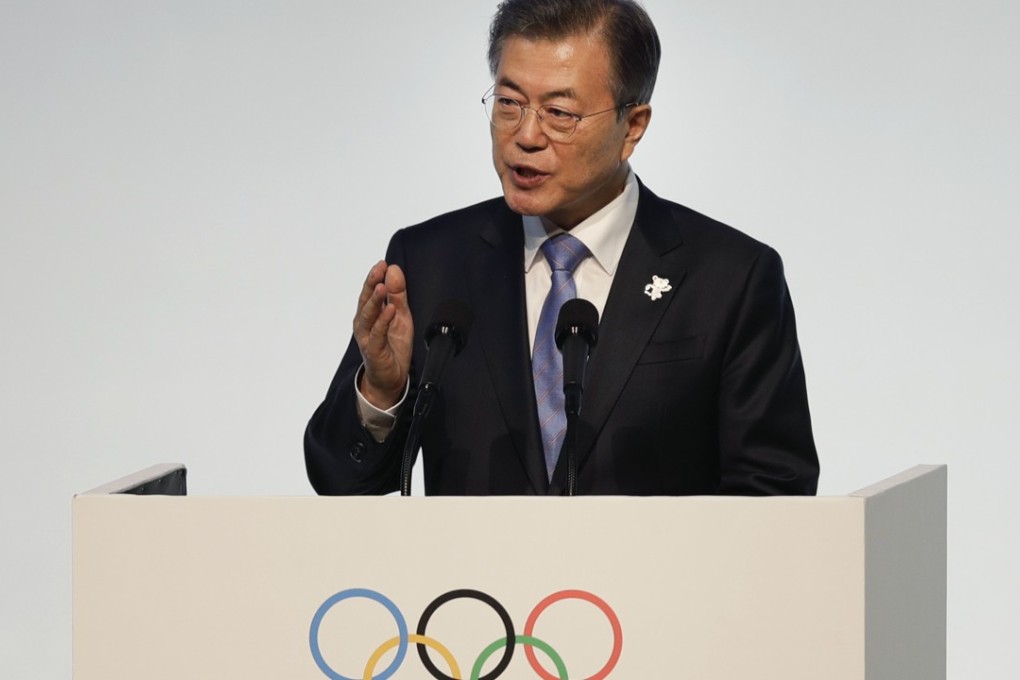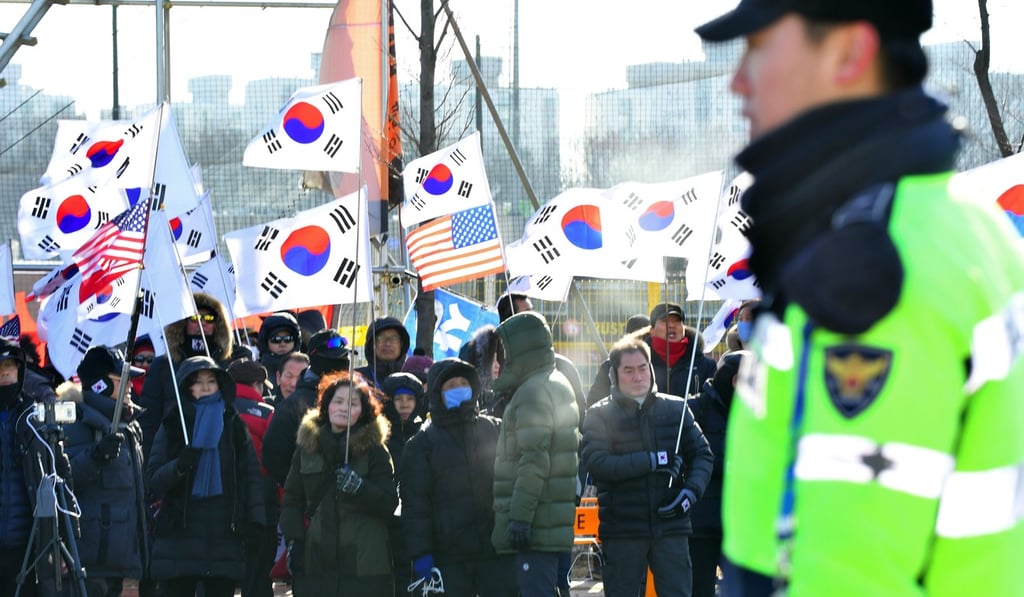Korea’s ‘commie’ Moon: the real winner of the Winter Olympics?
South Korean President Moon Jae-in took a calculated risk in engaging North Korea. If things go right, the Games could make his presidency

“Is Moon Jae-in pinko?” asked the title of a Korea Times op-ed published last year. Written by a senior editor, the piece began: “Some detractors of Moon Jae-in would call him and his supporters a bunch of commies and claim that they shouldn’t be trusted to run the country.” This is the stock criticism of members of the South Korean left – that they are closet communists, with Moon often held up as a shining example.
While it is too early to tell if Moon’s presidency is a success, it is already clear his legacy will be determined by his approach to North Korea.
North Korea’s Olympic charm offensive futile, says US – but will Kim’s sister get a handshake?

“Critics call him a red – a communist – because his approach to North Korea is dovish,” Tae Ki-soo, Moon’s biographer, told NPR in May. But Tae said he didn’t see that as a bad thing. “Moon treats North Koreans as human beings – because of his parents.”
Moon’s parents were North Koreans who defected in 1950 aboard the SS Meredith Victory, the ship that evacuated more than 14,000 refugees in a single trip during the Korean War. “They despised the North Korean Communist regime,” Moon told CNN in September. “They fled to seek freedom.”